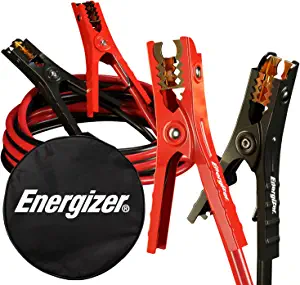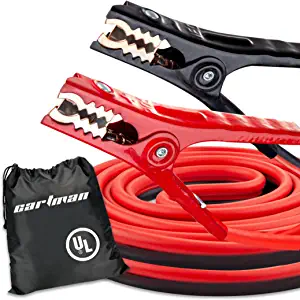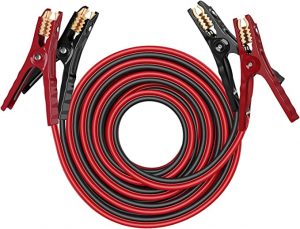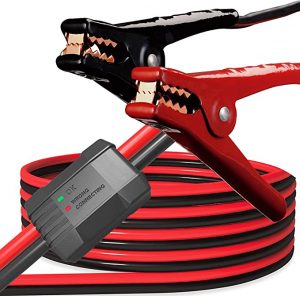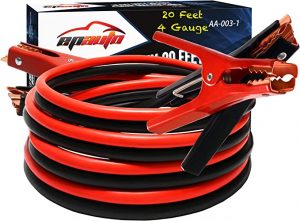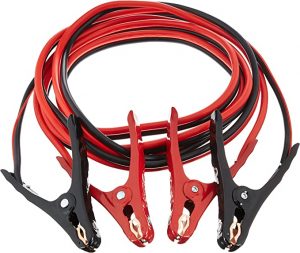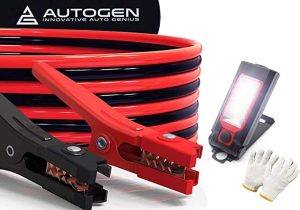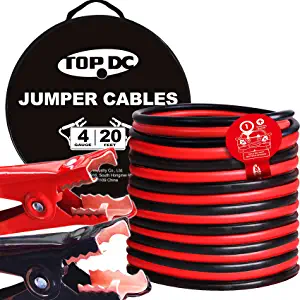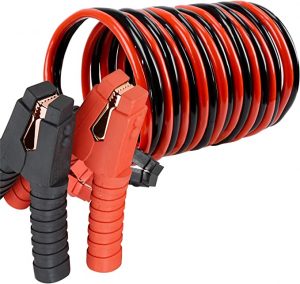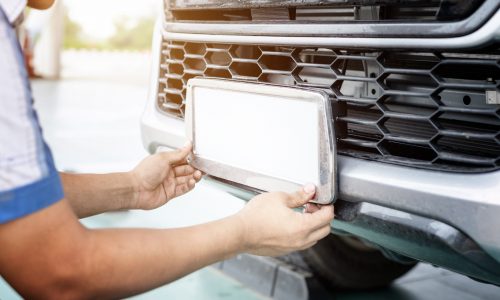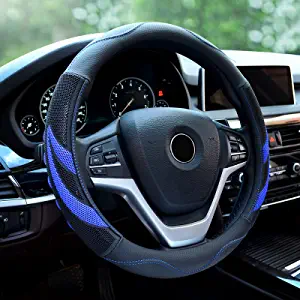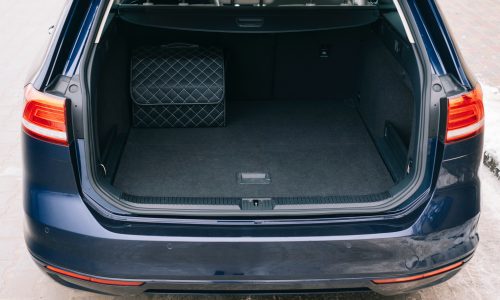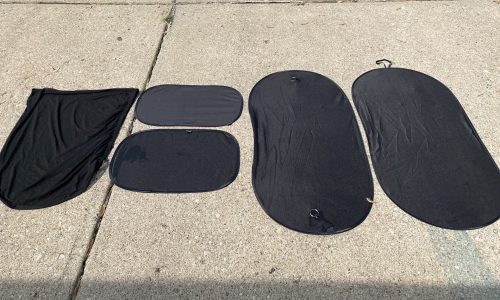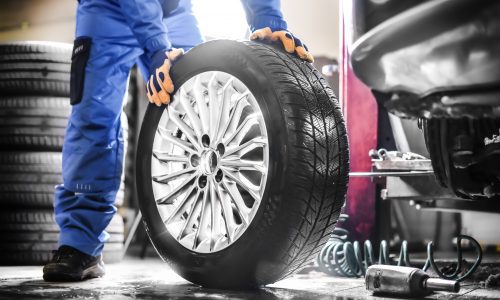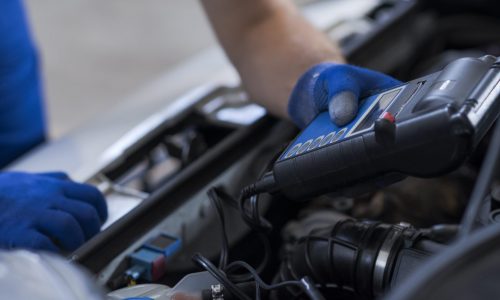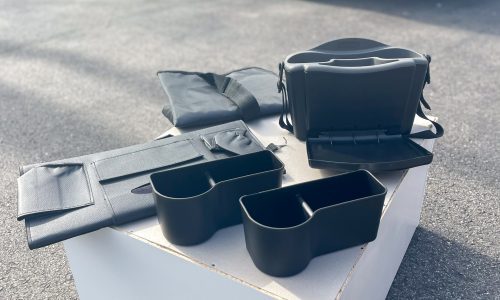The Best Jumper Cables
We looked at the top 9 Jumper Cables and dug through the reviews from 25 of the most popular review sites including and more. The result is a ranking of the best Jumper Cables.
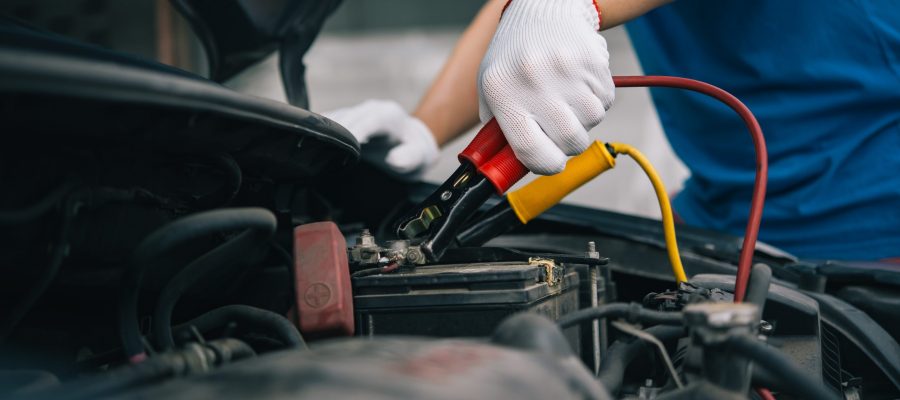
Our Review Process
Don't Waste Your Money is focused on helping you make the best purchasing decision. Our team of experts spends hundreds of hours analyzing, testing, and researching products so you don't have to. Learn more.
Our Picks For The Top Jumper Cables
- 1. Energizer 6 Guage Heavy Duty Car Battery Jumper Cables
- 2. CARTMAN 4 Gauge Car Battery Jumper Cables
- 3. THIKPO Heavy Duty UL-Listed Clamps Jumper Cables
- 4. NoOne Professional 6 Gauge Smart-6 Protector Jumper Cables
- 5. EPAuto 4 Gauge Heavy Duty Jumper Cables
- 6. Amazon Basics 10 Gauge Automotive Jumper Cable
- 7. AUTOGEN Heavy Duty UL-Listed 2 Gauge Automotive Jumper Cables
- 8. TOPDC Heavy Duty 4 Gauge Automotive Jumper Cables
- 9. Voilamart Heavy Duty Auto 2 Gauge Jumper Cables
This set includes 6-gauge, 16-foot jumper cables, making them ideal for cars, as well as smaller trucks and SUVs. They feature a thick vinyl coating for rust protection along with a strong spring that holds its grip once placed. A high-quality travel bag helps protect the cables when they’re not in use.
Great for PortabilityWith a convenient carrying case, this set of jumper cables is easy to store and take on the go with you.
These jumper cables can handle temperatures of -13°F to prepare you for breakdowns even in the coldest winter weather. You can use them on either top and side post batteries, and they’re available in a variety of amps and lengths. The clamps feature a patented design that features non-conducting rubber for extra protection.
Extra DurableDesigned to handle temperatures of -13°F, this set of cables features extra grip in the clamps and extra protection around the wires.
Double-deck rubber gives this set of jumper cables more durability while also keeping them water resistant. The clamps are UL listed and made from refined copper, and gauges are available from 1 to 6. They can handle temperatures as low as -40°F and are available in lengths of as much as 30 feet.
Versatile OptionWith temperature tolerance down to -40°F and gauges of up to 6, this set of jumper cables can tackle a wide range of situations.
If you’re concerned about safety, this set of jumper cables can help. It has reverse polarity protection, along with an LED light that will let you know when the clamps are safely in place. It comes in lengths from 16 to 30 feet and gauges of up to 6. The alligator clips feature strong teeth to ensure they stay firmly in place until you remove th...
Perfect for BeginnersReverse polarity protection and alert lights make it easy to get the results you want out of your jumper cables.
Buying Guide
A vehicle’s trunk isn’t just for carting groceries and luggage back and forth. It can also serve as storage for some safety essentials. If you’re ever stranded roadside, you can simply pop the trunk and access items that will either get you back on the road again or help keep you safe and comfortable until help arrives.
In addition to a spare tire, flashlight, a blanket and a first-aid kit, a set of jumper cables can help get you moving. Even if you don’t know how to use them, the person who comes to your aid might not have their own. But the right jumper cables will not only ensure they’re effective. They’ll also keep you safe.
There’s a right and a wrong way to attach jumper cables, and mixing them up can be dangerous. Each year, people are injured due to incorrectly connected jumper cables. Choosing a set that includes image-based directions, imprinted directly on the cables, can be a big help. When you’re stressed and rushing to hook things up, that picture can serve as a good reminder.
Jumper cables are essentially electrical cables. They’re designed to transmit the current from an active battery to one that has stalled. You park the two cars close together, opening the hood to access the batteries. Following the instructions on the cables, you’ll then connect the clamps to both the functional battery and the malfunctioning one, then start the car with the good battery first, letting it idle for several minutes before disconnecting the cables.
Here are some features to look for in jumper cables:
- Cable thickness: This is expressed in gauges, numbered 1 to 12. The lower the number, the thicker the cables are. A 6-gauge or 4-gauge battery should work for most vehicles.
- Insulation: Thicker cables have more insulation, which helps protect you and your vehicle.
- Length: The longer the cables are, the more easily you’ll be able to reach each car’s battery. You might not always be able to park both vehicles where batteries can reach each other with a 10-foot cable, so one that’s 20 feet or more will likely be the most useful.
- Amps: The more amps, the more power will move from the working vehicle to the car that won’t start. Typically, 400 amps suffice, but larger vehicles might need 800 or 1000 amps.
Why we recommend these jumper cables?
Products Considered
Products Analyzed
Expert Reviews Included
User Opinions Analyzed
Our experts reviewed the top 9 Jumper Cables and also dug through the reviews from 25 of the most popular review sites including and more. The result is a ranking of the best of the best Jumper Cables.
DWYM is your trusted roduct review source. Our team reviews thousands of product reviews from the trusted top experts and combines them into one easy-to-understand score. Learn more.
The Best Bang For Your Buck
NoOne Professional 6 Gauge Smart-6 Protector Jumper Cables
Key Takeawy
If you’re concerned about safety, this set of jumper cables can help. It has reverse polarity protection, along with an LED light that will let you know when the clamps are safely in place. It comes in lengths from 16 to 30 feet and gauges of up to 6. The alligator clips feature strong teeth to ensure they stay firmly in place until you remove them.
What other experts liked
What to Look For
- Jumper cables are designed to get your battery started so that you can move it. However, you’ll need to check your battery’s voltage to make sure it doesn’t need replacing. Many auto parts shops can test your battery for free in a matter of minutes.
- Once you’ve jumpstarted your vehicle, let it run for at least a half hour before cutting your car off again. This will help charge your battery and give you a better chance of it starting again once you cut the engine.
- Jumpstarting a car can be dangerous, so if you feel uncomfortable with the instructions, it might be worth it to wait for roadside assistance.
- Over time, jumper cables can wear out. The more you invest in quality cables now, the more likely you’ll be able to hang onto them for years.
- Store your jumper cables in an area of your vehicle where they won’t face damage or exposure to moisture. Coil your cables in a loop to avoid damaging bends and kinks.
- Some jumper cables come with a storage bag that helps you keep them safe and out of the way when not in use.
- If you live in an area prone to extreme weather conditions, consider that while shopping for jumper cables. Some can tolerate extra-chilly temperatures without the performance degrading, and this will come in handy if you’re ever stranded in the dead of winter.
More to Explore
Jumper cables help give your car a jumpstart, but you might be surprised to know Jumper was actually the last name of the man who invented them. In 1863, Leon Jumper needed a way to restart dead batteries using other devices that had functional batteries. Since cars weren’t in widespread use at the time, it was only later that they were repurposed for use on the roadways.
These days, jumper cables are limited to car batteries, with Jumper’s original use for the devices being a thing of the past. Today’s batteries either recharge or are replaced when they deplete their charge, although you can use jumper cables on motorized tools like tractors and mowers.

